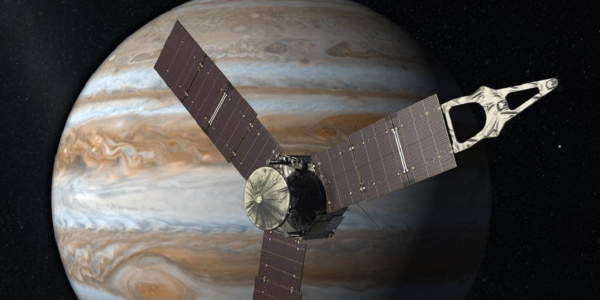PROGRAM CHANGE: NASA’s Juno Mission To Jupiter: St. Louis Astronomical Society April Meeting
Juno’s goal is to understand the origin and evolution of Jupiter. Underneath its dense cloud cover, Jupiter safeguards secrets to the fundamental processes and conditions that governed our solar system during its formation. Jupiter can also provide insights into the planetary systems being discovered around other stars. With its suite of science instruments, Juno is investigating the interior structure, mapping Jupiter's intense magnetic field, measuring the distribution of water and ammonia in the deep atmosphere, and exploring the mysterious Great Red Spot. The spacecraft has also made flybys of the Galilean moons Ganymede, Europa and Callisto. A huge bonus is the small public outreach camera that is taking fantastic images of Jupiter’s beautiful clouds. The images – some science, some art – are processed and available to the public worldwide. JUNO was launched in August 2011 and has been in orbit since July 4, 2016.
Dr. Fran Bagenal is a research scientist and professor at the University of Colorado and is co-investigator and team leader of the plasma investigations on NASA’s New Horizons mission to Pluto and the Juno mission to Jupiter. Her main area of expertise is the study of charged particles trapped in planetary magnetic fields and the interaction of plasmas with the atmospheres of planetary objects, particularly in the outer solar system. She has participated in several of NASA's planetary exploration missions, including Voyager 1 and 2, Galileo, Deep Space 1, New Horizons and Juno.
The St. Louis Astronomical Society is an organization for individuals interested in astronomy and telescopes. The public is invited to attend its meetings, telescope observing sessions, and special events. For more information about Astronomical Society events, please visit www.slasonline.org.
The event, cosponsored by NASA's Missouri Space Grant Consortium, is open to the public free of charge. Free parking will be available.

